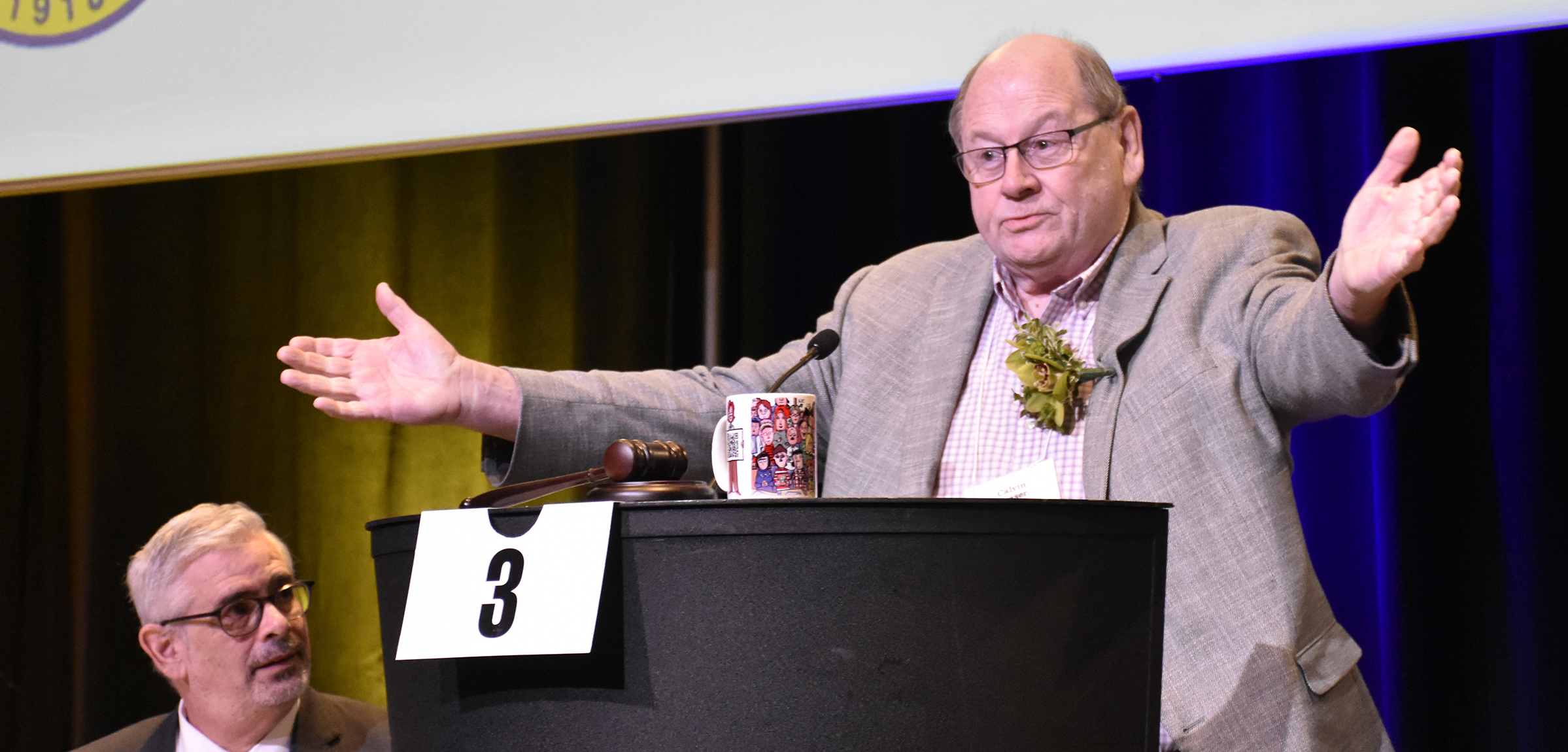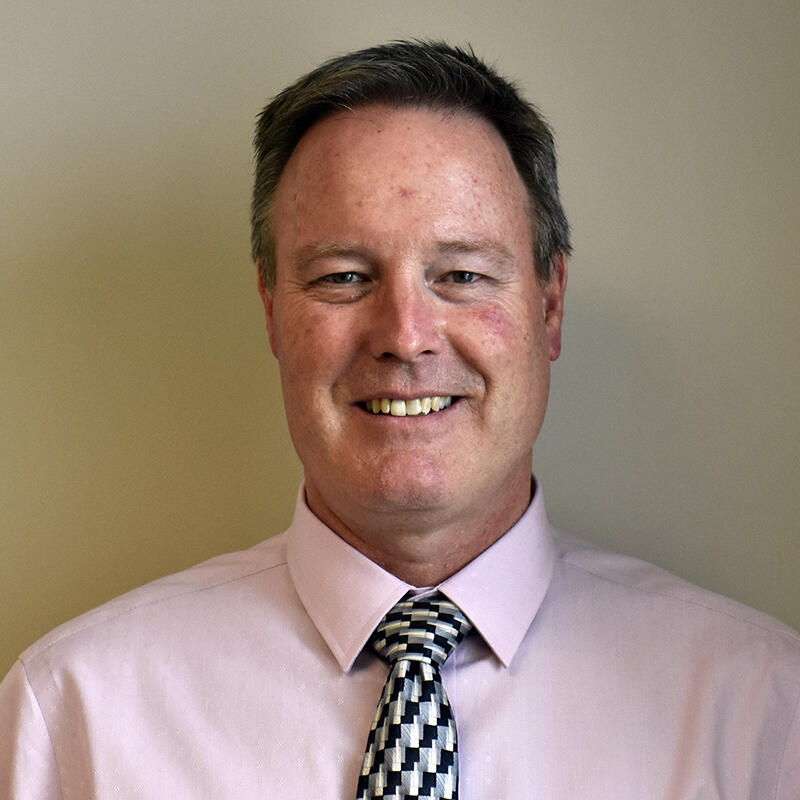Public education has seen many changes since the 1970s and 80s, and often at the expense of student-centred teaching, former ATA staff officer Calvin Fraser told delegates at the 2024 Annual Representative Assembly (ARA).
Fraser received the ATA’s Honorary Membership Award in recognition of his dedication to the profession, through his work with the ATA and the Canadian Teachers’ Federation.
In his acceptance speech, Fraser related how, throughout his career, he has witnessed public education move from a philosophy of meeting the individual student’s needs to a system that now seems focused on producing workers to join the workforce.
“As a teacher of the seventies and eighties, I was able to see myself as a true professional in teaching my students, not on behalf of their parents, but as a complement to the parents, with the focus on the children’s needs in what was then a child-centred education program,” said Fraser. “But the conservative caucus of that day found (this approach) inconsistent with the ethical base of the educational philosophy of a conservative party.”
Fraser said he saw a new tradition evolve in education, with basic knowledge and skills being put ahead of developing individual foresight and planning skills.
“I truly did have the glory years of teaching where the focus was on individual potential,” Fraser said. “You don’t have that anymore. You don’t have the resources for that anymore. You don’t have the support for that anymore.”
Beginning in 1972, Fraser spent 18 years teaching in public schools while serving in numerous volunteer roles with the ATA. He joined the ATA as a staff officer in 1990 and was named coordinator of MS (now known as Teacher Employment Services [TES]) in 1997. After working for the ATA for 17 years, Fraser became secretary general of the Canadian Teachers’ Federation, serving in that role for eight years before retiring.
Fraser told delegates that they are the collective voice of teachers in an increasingly individualistic society. He said debate regarding public education should not be about conservative or liberal boundaries but should be on how society values and treats their children and teachers.
“You are an important voice in that debate. Others continue to define you and your role — but I’ve never let others define me or my role and I’m putting my faith in you as the right people to define your own roles.”
Fraser, a staunch supporter and advocate for the ATA, remembers his initial misgivings about joining staff at the main office in Edmonton. As a young teacher, he said, he questioned many things — a trait he still is proud to possess. He said he had concerns about the structure of the organization until a fellow teacher imparted some valuable advice that he believes holds true to this day.
“A wise teacher said to me, ‘Calvin, if you have the right people, with the right goals, any structure will do.’ An essential truth! And I’ve tried to be one of those right people working with the right people ever since.” ❚



